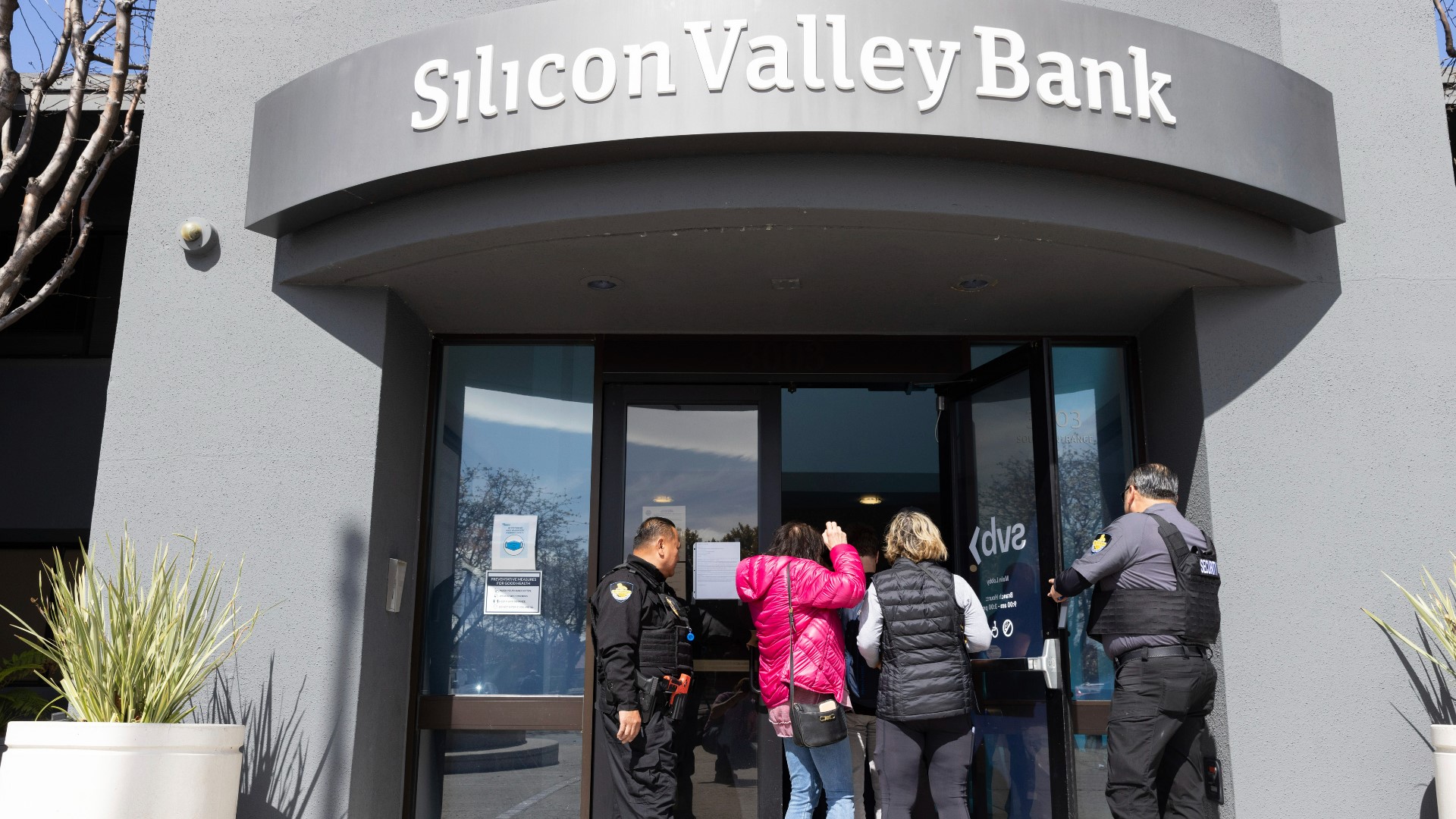HARRISBURG, Pa. — It's a collapse some claim the federal government should have seen coming.
Harrisburg University Economics Professor Dr. Pavlo Bruyi says Silicon Valley Bank wasn't prepared to give back billions to big investors who suddenly wanted out.
"Silicon Valley Bank had a smaller share of total deposits held as cash compared to an average bank," said Dr. Bruyi.
Penn State University Schreyer Chair of Finance Dr. Fariborz Ghadar says no bank could have prepared for what happened, but SVB's technology-heavy investments made it even more susceptible to rising interest rates.
"The deposits are huge, the assets are volatile. On one hand, they're big accounts, on the other hand, if they feel like [a] bank is in trouble, they can withdraw everything in a matter of seconds," Dr. Ghadar told FOX43 News.
While banks with a similar structure may be at risk of suffering a similar fate, experts said banks in the commonwealth should be in the clear.
"I don't think a regular average consumer has anything to worry about," said Dr. Bruyi.
"If you live in Pennsylvania, you can feel comfortable that your banks are relatively secure," Dr. Ghadar added.
That's because most Pennsylvania bank accounts are completely insured.
The FDIC covers banks up to $250,000. Dr. Ghadar said 75% of Pennsylvania banks are under $250,000. Meanwhile, just 6% of SVB's accounts were under $250,000, leaving some investors out millions.
The federal government is stepping in to cover those losses, but the collapse is sparking new conversations on Capitol Hill.
It could mean more regulations, making sure banks can handle the stresses of fluctuating interest rates and big withdraws.
"The regulators, who were supposed to be checking on all these things, maybe did do as good of a job. Maybe these medium-sized banks are not that medium and we should have some regulations for them as well," said Dr. Ghadar.
SVB's parent company filed for bankruptcy on Friday, but experts said it will not impact the bank's investors.

